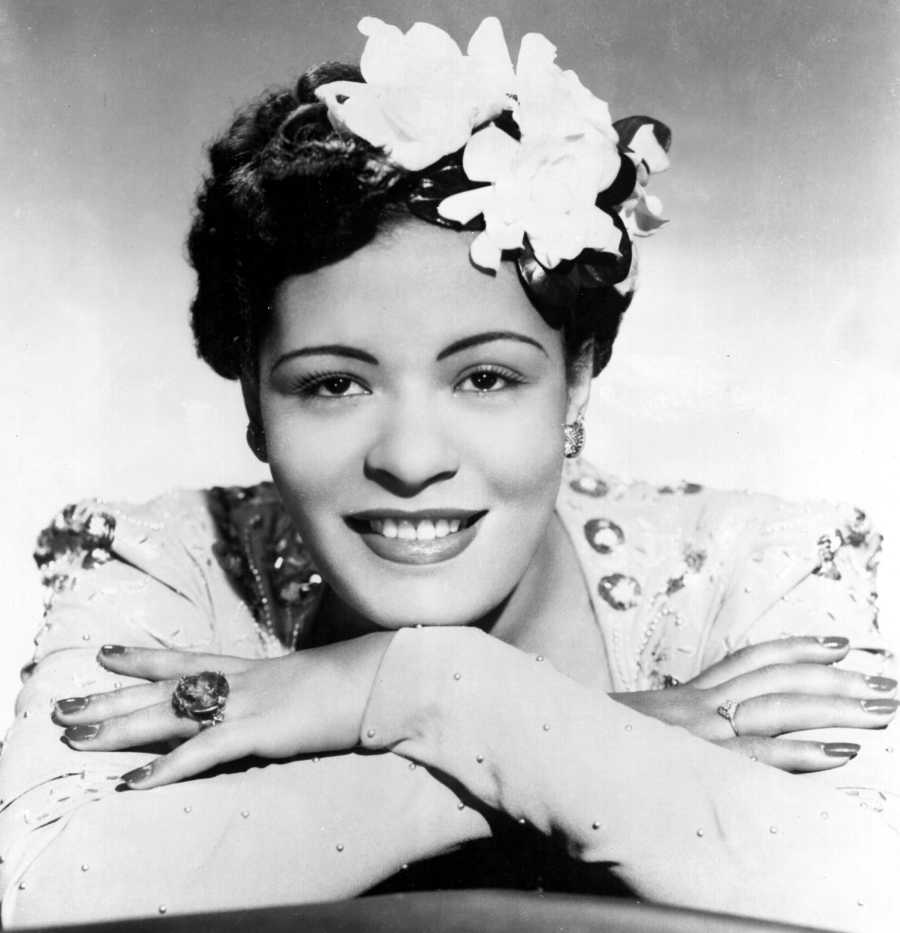Billie Holiday died 53 years ago today. Frank O’Hara famously commemorated the occasion in his poem, “The Day Lady Died,” which concludes, “I am sweating a lot by now and thinking of/leaning on the john door in the 5SPOT/while she whispered a song along the keyboard/to Mal Waldron and everyone and I stopped breathing.” Give O’Hara a read and then listen to today’s report by Elizabeth Blair on NPR’s Morning Edition about Lady Day and the status of her gravesite in New York.

“Fine and Mellow” was paired with “Strange Fruit” on the Commodore 78 that Billie recorded in 1939. Here she sings it with soloists Ben Webster, Lester Young, Coleman Hawkins, Vic Dickenson and Roy Eldridge on the 1957 CBS-TV special, The Sound of Jazz.
Here’s the review I wrote several years ago for Downbeat of Julia Blackburn’s book, With Billie.
In an interview she gave in 1959, the year of her death at age 44, Billie Holiday said, “Every time I do a show I’m up against everything that’s ever been written about me. I have to fight the whole scene to get people to listen to me with their own ears and believe in me again.”
Regrettably, Julia Blackburn’s With Billie, an awkward synthesis of memoir, biography, and oral history, risks separating listeners even further from Lady Day’s musical legacy. The book draws on the archive of recollections compiled by the late Linda Kuehl over 25 years ago from people with personal and professional connections to Holiday. This “great babbling of voices” is excerpted and interwoven with a vague semblance of narrative by Blackburn, whose identification with the great jazz stylist grew from a London childhood subject to its own parental neglect. Beginning with a description of her discovery at age 14 of a Holiday recording at a party given by her parents for a rogues gallery of “very drunk” people in Mayfair, Blackburn selects from accounts of Holiday’s life that only reinforce one’s belief in a truism of social pathology: Hurt people hurt people, and this applies as equally to racists as to drug dealers and pimps.
Holiday emerges in these pages as precocious, profane, tender-hearted, and woefully lacking in self-esteem, a chameleon who “reached out for love.” She inhabited a world that either failed to appreciate her unique gifts, or exploited them at every turn. Her mother is described as lacking “any inkling of the greatness of her daughter, any feeling for Billie,” while her husbands, lovers, and agents come across as reprehensible by any standard. Billie was as hopelessly addicted to violent, abusive people as she was to alcohol and narcotics, and one of the book’s most poignant passages describes her complete loss of nerve as she prepares to confront her agent, Joe Glaser. Glaser and Billie’s husband Louis McKay are described as “vermin” by dancer James “Stump” Cross, who says, “I don’t think those two had a clean thought towards anybody; it was always about using you, squeezing you like a lemon, wringing you dry.”
Blackburn has little to say about her subject’s phenomenal artistry, but there are choice observations by others. Claire Lievenson says Billie sang “as if she was having an affair with herself,” and that her singing transported her to a place where “she [said] ‘this is me, my other me, sharing it with you’.” Pianist Jimmy Rowles says she was “like a dream walking through the room,” but his off-color remarks about Billie’s sexuality remind one of the twisted projections that are continually made about her. Billie’s accompanist Bobby Tucker says, “She could find a groove wherever you put it…even if it was like a dirge.” And Mae Barnes hints at a reason her repertoire leaned toward melancholy ballads from the mid-1940’s on: “When she was drinking like a lush and smoking gage, she’d rock and roll and carry on like hell…but when she was on the heavy stuff she’d be listless.”
Blackburn devotes an inordinate amount of space to taking issue with America’s drug laws and temperance movements. To decry the racist taunts and myriad other Jim Crow slights that Holiday suffered as a marquee performer, and the surveillance she was subjected to as the singer of “Strange Fruit,” is one thing, but Billie’s is hardly a life on which to base dubious arguments about the harmlessness of alcohol and marijuana. And Blackburn’s equation of the “pursuit of happiness” clause in the Declaration of Independence with unfettered freedom to drink and drug trivializes Thomas Jefferson’s intent. Holiday’s habits were no trivial matter, as these testimonies of violence, double-cross, and decline make abundantly clear. Readers will do well to keep Lady Day’s recordings near at hand as both a tonic to her bleak saga and a reminder of why she remains a figure of renown, influence, and appeal.